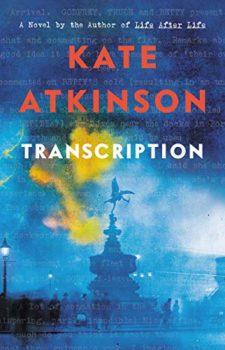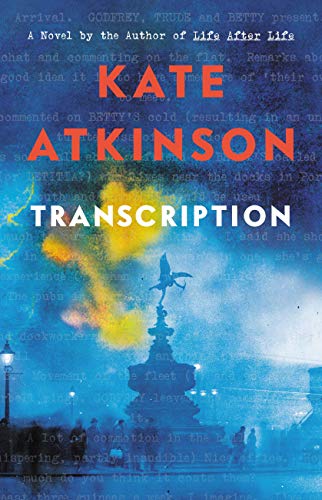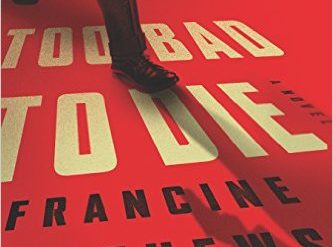
Strange. After reading her earlier books, the last thing I would have expected is humor. Yet Kate Atkinson’s latest, Transcription, is surprisingly funny. Well, maybe witty is a better word. This is British humor, after all. Dry humor. The sort of thing most Americans frown through.
Estimated reading time: 4 minutes
Kate Atkinson’s latest is a spy story in three acts
Atkinson spins out her tale in sections that shift abruptly through the years, from 1981, back to 1950, then further to 1940, and so forth. Nearly all the action takes place in those three years. The story revolves around Juliet Armstrong. We meet her in 1981 as she nears 60 years of age. But the formative events in the plot occur three and four decades earlier, when Juliet had been recruited as a typist by MI5. Ten years later, we find her working as a children’s radio producer for the BBC, when her wartime work comes back to haunt her. However, we don’t learn the full story until nearly the end of the book. It you read it, prepare for a shock. Even though Atkinson’s tale appears to be quite pedestrian through much of the book, with only her brilliant use of the language to carry the tale, it’s nothing of the sort. Trust me. This book is a thriller, and a good one.
Transcription by Kate Atkinson (2018) 331 pages ★★★★★
About that British humor (or, rather, humour)
I found Atkinson’s facility with the English language to be intoxicating as well as funny. She’s a brilliant writer. The understated humor strikes my fancy. For example:
- Describing one of her bosses, Juliet muses that “he had an artificial leg that you could never mistake for a real one. It made people kind to him, although there was no real reason why they should be as he was the waspish sort and it was doubtful that losing a leg had improved him.”
- Juliet reflects on a minor character: “he had the shabby air of the post-European diaspora. There was a trollish look to him too, as if he had been put together from leftovers. He could have been sent from Booking to play one of the dispossessed.”
- And here is Juliet lamenting the lack of sex in her life: She “was waiting to be seduced by him. By anyone really, but preferably him. It was turning into a rather long wait.”
- And I can’t resist one last bit, this one from dialogue: “His family owns huge swaths of the Highlands but they only go there to kill things.”
I recognize that most Americans would be likely to shrug off this sort of thing. I found it very funny. So sue me!
About the author
Kate Atkinson has written 12 novels, one play, and a book of short stories. Four of the novels feature retired police Inspector Jackson Brodie, now a private detective; all four have been adapted for television. Atkinson has won the Costa (formerly Whitbread) Award, a major British literary prize, three times for her novels.
For additional reading
You’ll find this book on The 40 best books of the decade from 2010-19 as well as on my list of The decade’s top 10 historical novels, mysteries & thrillers, and science fiction. And check out The 10 best novels about World War II.
Previously, I reviewed two of Atkinson’s Jackson Brodie novels:
- Case Histories (Jackson Brodie #1), reviewed at Something mysterious is going on, which I enjoyed a great deal; and
- Started Early, Took My Dog (Jackson Brodie #4), reviewed at Kate Atkinson started well, went to the dogs, which I didn’t particularly enjoy.
You might also enjoy my posts:
- The 15 top espionage novels
- 20 good nonfiction books about espionage
- 20 excellent standalone mysteries and thrillers
- 20 most enlightening historical novels
- Top 10 historical mysteries and thrillers
And you can always find my most popular reviews, and the most recent ones, on the Home Page.



























